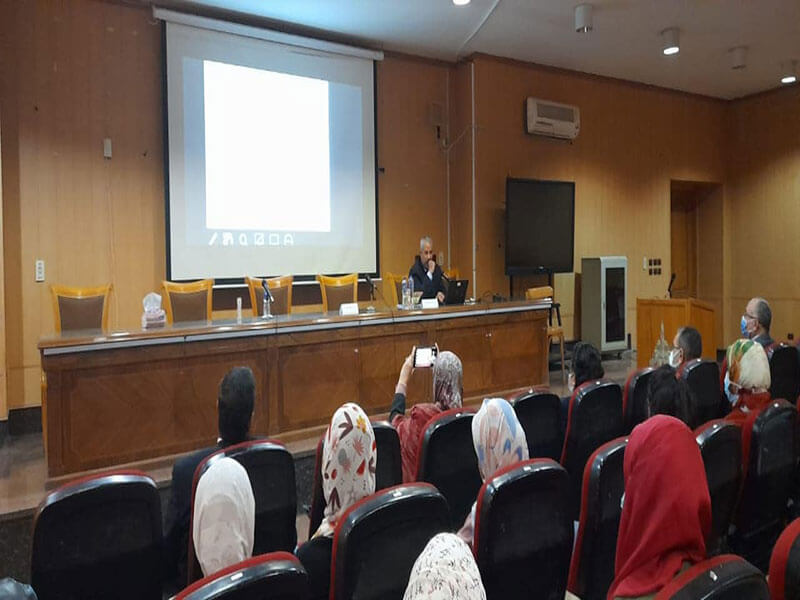Director of the Translation Department at the World Bank during a seminar at the Faculty of Al-Alsun confirms: The human element is indispensable in the future of translation
The Graduate Studies and Research Sector at the Faculty of Al-Alsun at Ain Shams University organized a scientific symposium entitled "The Future of Translation in the Era of Unprecedented Technological Developments", under the auspices of Prof. Dr. Mahmoud El-Metini, President of the University, Prof. Dr. Ayman Saleh, Vice President for Graduate Studies and Research, Prof. Dr. Salwa Rashad, Dean of the College, and the supervision of Prof. Dr. Ashraf Attia, Vice Dean for Graduate Studies and Research Affairs, during which Prof. Osama Mohamed Abdel Hamid, Director of the Translation Department at the World Bank, gave a lecture in the presence of a group of faculty staff, the teaching assistants, and students of the bachelor's and postgraduate levels.
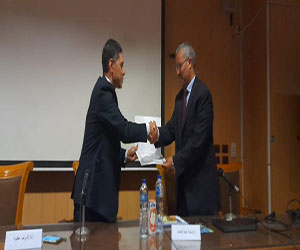 |
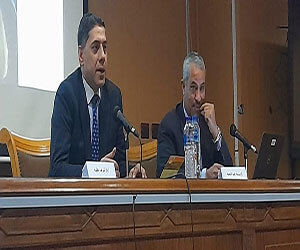 |
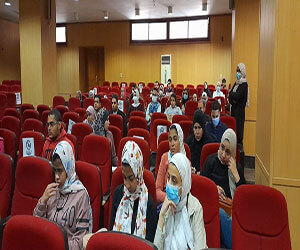 |
||
Prof. Dr. Ashraf Attia, Vice Dean for Graduate Studies and Research, attended the seminar, stressing that today is witnessing rapid technological development in various fields, and translation today is witnessing an unprecedented boom in the use of technological applications assisting the translation process, which saves a lot of effort and time, especially in light of the acceleration of events. The need to make decisions as quickly as possible.
He explained that the faculty administration is developing its courses to keep pace with the labor market, and the Faculty of Al-Alsun at Ain Shams University is one of the important pillars for preparing a qualified translator for the labor market at the highest level.
Mr. Osama Mohamed Abdel Hamid, Director of the Translation Department at the World Bank, said that among the translation requirements in the World Bank, the applicant must have at least a master’s degree in one of the specializations, especially in translation, be fluent in the use of assistive software in translation, and be intellectually developed with knowledge and knowledge in various fields. knowledge, pointing out that the work environment in the world is witnessing fierce competition for jobs.
He continued, stressing that proficiency in at least two foreign languages, in addition to mastering the Arabic language, has become a prerequisite for entering the competitive examination for a job in the field of translation in the United Nations institutions and regional and international organizations. For example, a senior specialist in technological applications at the United Nations, a graduate of Al-Alsun, and an Environmental Management Officer at the International Monetary Fund, a graduate of Faculty of Al-Alsun, in addition to a large number of interpreters in various United Nations offices.
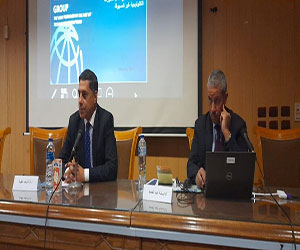 |
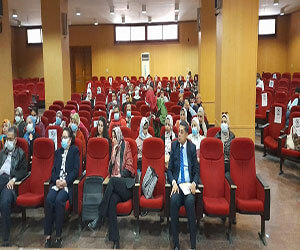 |
In his speech, Mr. Osama Abdel Hamid reviewed the emergence of the World Bank since 1944 and the various activities carried out by the International, pointing out the importance of the translator being fully aware of economic and commercial issues to ensure the accuracy of the translation and the correct choice of vocabulary.
He reviewed a number of terms and how to translate them correctly and the mistakes that the translator might make, pointing to the importance of adapting terms to be consistent with the text and context, and he reviewed the differences between press translation, website translation and written translation using technological applications.
He gave an explanation of some machine translation programs and how to use them to help the translator complete the translation of texts and official documents in the World Bank quickly and accurately. He explained that the last ten years have witnessed a tremendous development in translation technology and the formation of a wide base of terms thanks to the tremendous technological development. In fact, we are facing an era of speed in Information dissemination and translation.
He stressed that translation tools and programs cannot replace the human element in translation, and there are no features that suggest that so far, but they are important tools that make the translator more familiar and faster in various disciplines at the level of the world's languages.


.svg)

